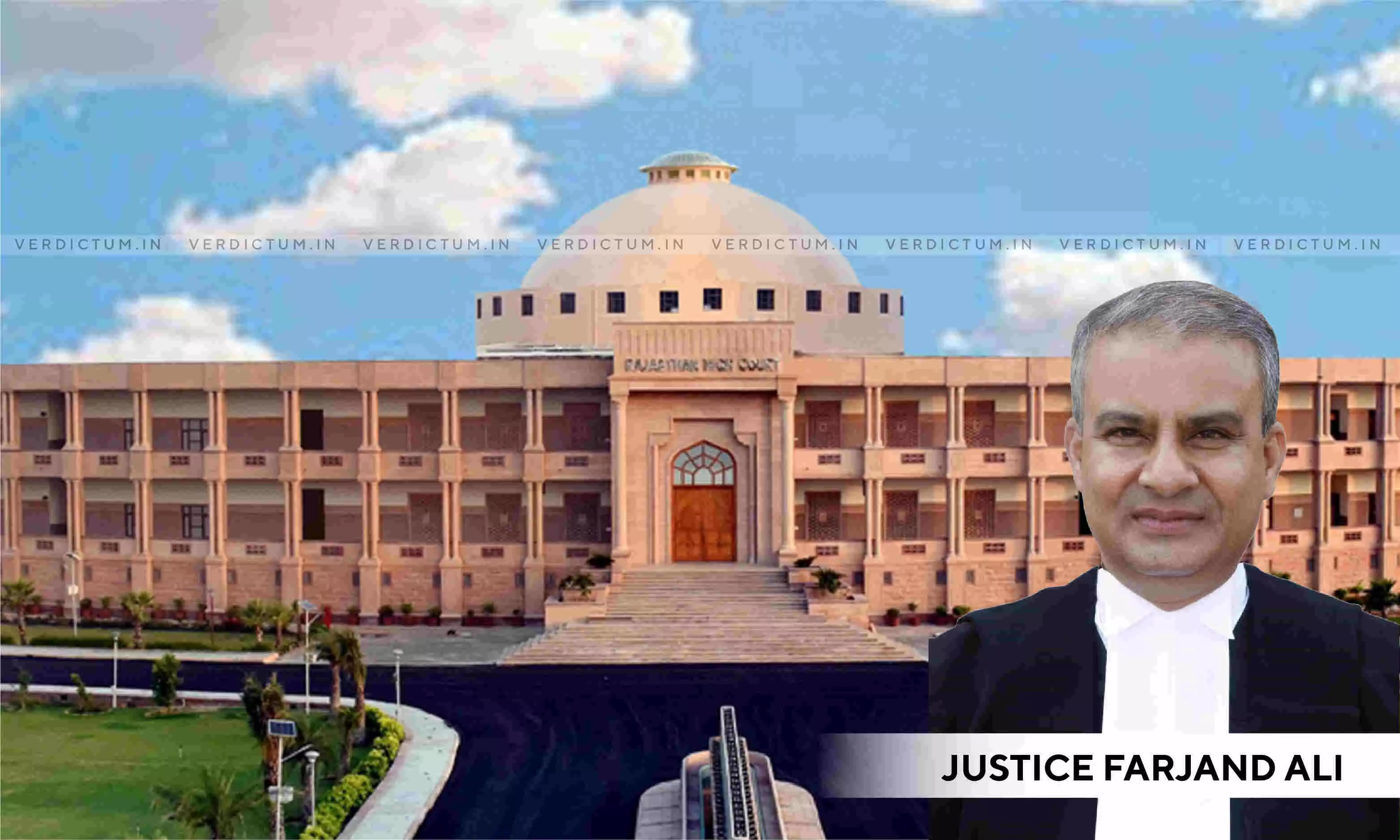
Denying Appointment On Ground Of Pendency Of Criminal Case Unreasonable: Rajasthan HC Grants Relief To Government Job Aspirant
 |
|The Rajasthan High Court has granted relief to a government job aspirant whose candidature had been rejected nine years ago due to a pending criminal case.
The Court found the rejection to be illegal, arbitrary, and unjust, particularly since the criminal charges did not involve moral turpitude and the applicant had not been proven guilty. "..pendency of a criminal case, which does not involve moral turpitude, cannot be construed as an impediment in appointment and performance of duties by such person," the Bench of Justice Justice Farjand Ali observed.
The Single-Judge Bench was dealing with a Civil Writ Petition filed by an individual who had applied for the position of technical helper at Jodhpur Vidhyut Vitran Nigam Ltd. (JVVNL). Despite being meritorious according to the marks list, the petitioner's appointment was denied due to the ongoing criminal case.
The Court emphasized the principle of criminal jurisprudence that an accused is presumed innocent until proven guilty. It noted that the charges against the petitioner were petty and involved no moral turpitude, making it unjust to deny him employment on that basis.
The Court observed that while a conviction in a case involving moral turpitude might render a person ineligible for government service, this was not applicable to the petitioner, who had not been convicted. "The petitioner herein is facing trial in a case involving the offences under Section 447 and 323 of the IPC. The case appears to have been filed on a trivial issue and it is very common to implicate many family members of other party whether they actively participate in the offence or not...the parties have settled the dispute and there is every chance that the petitioner shall be acquitted from the charges. Both the offences under Sections 447 and 323 of the IPC are bailable and compoundable and thus, as per Section 320 of the CrPC, the trial Judge has no option but to acquit the accused based on compromise," the Bench noted.
“Unless a person is held guilty by conviction in a trial held by the Court, the presumption of his innocence has to be construed. Mere involvement in a criminal case when the trial is still underway is not a mirror to reflect the criminal or unsound character of a person,” the Court said.
The Court also placed reliance on the Supreme Court judgment of Pawan Kumar v. State of Haryana [1996 SCC (4) 17], where the Apex Court laid down principles to determine whether an offense involves moral turpitude. These principles include whether the act shocks the moral conscience of society, whether the motive behind the act was base, and whether the convict would be looked down upon by society.
In the present case, the petitioner faced trial for criminal trespass and voluntarily causing hurt, charges which the Court found to be based on trivial issues. the Court noted that it was common in village setups to implicate many family members in such disputes, even if they had not actively participated in the act. Therefore, the Court held that the case against the petitioner did not involve moral turpitude.
The Court also highlighted the challenges of securing government employment in a populous country like India. He noted that denying the petitioner a government job due to a pending trivial criminal case would leave him with little chance of securing such employment even if he were later acquitted.
“In the present time, when the population of our country has increased multifold, it is very difficult to find a government job. In such a situation, when a person by his hard work qualifies the competitive examination with his village background where there are customary and recurrent property disputes, feuds, etc., and the name of the entire family is dragged as accused, such involvement which is yet to be observed as false or otherwise, cannot be taken as a touchstone or determinative factor to hold the character of the person unsatisfactory to deprive him of his hard-earned employment,” the Court observed.
Furthermore, the Court noted that trials in many cases take a long time, and if a deserving person is denied appointment due to a pending case, there is very little chance for them to secure government employment later, even if acquitted.
Conclusively, the Court opined that that the action of the respondents in denying appointment to the petitioner on the ground of pendency of a criminal case is unjust, arbitrary and unreasonable
"The petitioner is declared entitled for appointment on the post of Technical Helper if he is otherwise eligible for the post. Accordingly, the writ petition is allowed. As per Annexure-R/1 dated 08.01.2016, the petitioner has been appointed on the post of Technical Helper in pursuance of the interim order passed by this court. He shall be allowed to continue in service with all deserving benefits. The stay petition is disposed of," the Court ordered.
Cause Title: Ranveer Kumar v. Jodhpur Vidhyut Vitran Nigam Ltd. & Anr. [Neutral Citation No. 2024:RJ-JD:31629]
Appearance:
Petitioner: Advocate S.K. Verma
Respondent: Advocate Vipul Dharnia
Click here to read/download the Order